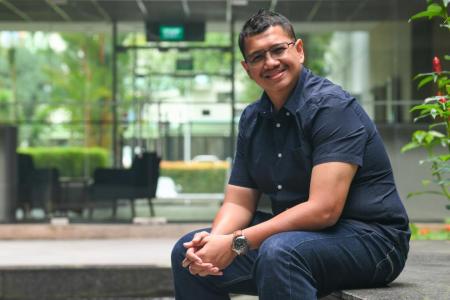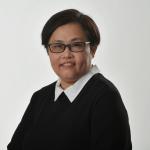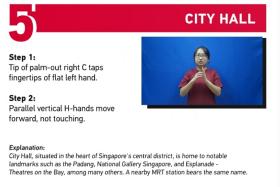The passion for science drives journey
Passionate is the word that best describes Dr Mohamed Faizal Badron as he shared his research journey, which set him on the Doctor of Philosophy (PhD) programme at the National Institute of Education, Nanyang Technological University, Singapore (NIE NTU, Singapore).
Charting his passage on the programme that he completed in under five years as a part-time student in an interview with TNP recently, Dr Faizal said: “I was in NIE as a teaching fellow for the first year, in the Natural Sciences and Science Education Academic Group.
“That was when I got to know Associate Professor Teo Tang Wee, and I was sharing with her my interest in conducting research in a non-mainstream school to understand the classroom culture and how science is being taught. She told me there was a good opportunity to do a PhD in that area which spurred me to begin reviewing the literature on science education in non-mainstream schools within my first year in NIE.”
Dr Faizal, 42, was accepted into the programme in August 2015, and conferred the degree in November 2020.
As a teaching fellow in NIE, Dr Faizal had access to a wide array of journal databases.
“It was easier for me to formulate the literature review before submitting my application for the PhD programme,” he said.
“I took four courses in the first two years of the PhD programme which served as the foundation in building my research skills. In the remaining two and a half years, I focused fully on my research, gathering and analysing data. I presented my study in local and overseas conferences which allowed me to broaden and deepen my knowledge in my research interest.
“Because I was new to this research field, established researchers and professors provided me with critical feedback to sharpen my research methodology and findings.”
The feedback from the conferences was a perfect opportunity for Dr Faizal to refine his research questions and be mindful of the limitations of his research.
“All those conferences helped to tighten up the loose ends of my research,” he added.
Dr Faizal, who has been the Head of Department (HOD) for Science in Bukit Batok Secondary School, since 2018, said: “I’m passionate about science education. I am very passionate over how we teach science in a classroom. I've been a teacher for about 15 years and I've seen quite a bit how mainstream schools conduct their science lessons in the classrooms. It's not foreign to me.”
His main interest was thus drawn to how science is taught in non-mainstream schools.
He explained: “I have the knowledge base, in terms of pedagogy and content. I am pretty strong in these areas as it comes with the years of teaching experience and also my role as a HOD Science. But for non-mainstream schools, I am intrigued in the teaching and learning process in the classroom which remained quite 'hidden' in the Singapore education system.
“Hidden, because the opportunity for let's say, someone who is not teaching in a non-mainstream school such as a madrasah, to observe a lesson in the classroom, is perhaps quite low.”
Dr Faizal was intrigued. He wanted to know if students in non-mainstream schools experienced similar exposure or learning experience as students in a mainstream school.
His observations led him to conclude there were certain differences.
He said: “I think partly because in such environments, the teacher plays a dominant role in the teaching of content to the students. Students highly respected their teachers as the knowledgeable person and played a passive role in absorbing the content taught by their teachers during lessons. Due to this dominance and passive relationship between the teacher and students, the science lessons tend to incline toward being teacher-driven.”
Dr Faizal added: “Students may find it difficult to present a counter argument to a scientific concept or even present an alternative idea especially if students were uncertain if their ideas are correct in the first place. The anxiety for students to share his or her ideas with their teacher is another area I was curious to find out more.”
That, he said, made up the heart of his research.
“I introduced a particular strategy, the cogenerative dialogue, in my study, where the authority dominance of the teacher was lowered to about the same level as the students,” said Dr Faizal.
“This reduced the anxiety in students to share their ideas and views with their teacher. It opens up the opportunity for students to ask questions and provide suggestions to their teacher on how to improve or change their method of instructions in their lessons.”
There was a 15-year-old student who kept quiet for the first few sessions of the cogenerative dialogue. She barely spoke, recounted Dr Faizal.
“She is very articulate in languages but she didn’t speak because of fear, nervousness in the presence of her teacher. It took about four rounds of cogenerative dialogue before she had the confidence to say something,” he said. “When I first heard her suggestion, I was like yeah! I did something right.”
Dr Faizal said he went in with the intention to observe the teaching and learning in the classroom, but the outcome of his research has a positive impact on how teachers and students interacted with one another outside of lesson time.
“It was something which I didn't expect. But from my research, it showed a connection between what I've done in these dialogue sessions, what's happening in the classroom, the changes, and what's happening outside of the classes,” he said.
After the data collection which took about eight months, it was time to buckle down and begin writing.
Dr Faizal said: “I wrote almost every night, when everyone else was asleep. I’d start at about 10pm, right up to 2am.
“It was a discipline I instilled in myself, in order to finish the study within the next two and a half years. It was something I was very passionate about and I wanted to get it published to benefit the teaching fraternity.”
His ultimate aim is so that “people can read about the research and further studies can be done to benefit non-mainstream schools”.
For Dr Faizal to achieve all of that, he counted his wife as his pillar of support.
“My wife is my strength,” he said.

Madam Normawarni Ramli, 41, formerly worked in the social services sector full-time for about six years, before scaling down to doing freelance. She stopped working when their youngest daughter came along.
The couple have four daughters, aged six, nine, 14 and 17.
She said: “I helped to manage the home, the kids, so that frees up Faizal’s time and focus for his research work. I try to ensure he has a peace of mind - after all it is for the benefit of the children, for himself.”
Dr Faizal recognised how the programme gave him the opportunity to realise his potential as a budding researcher.
He said: “In doing my PhD with NIE, I worked with esteemed colleagues to sharpen my research skills and pursue my passion in science education research.”
REGISTER NOW
All working professionals in the sectors of education, healthcare, social service,
integrated care, counselling/psychology, science and technology, defence, wildlife, sustainability are welcome to apply for the diverse range of graduate programmes and professional pathways offered by National Institute of Education. Find out more on www.nie.edu.sg/ge.
Get The New Paper on your phone with the free TNP app. Download from the Apple App Store or Google Play Store now



